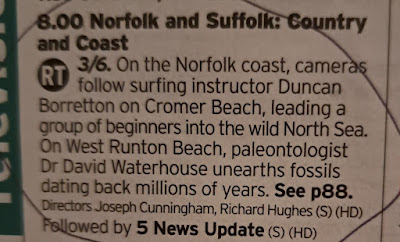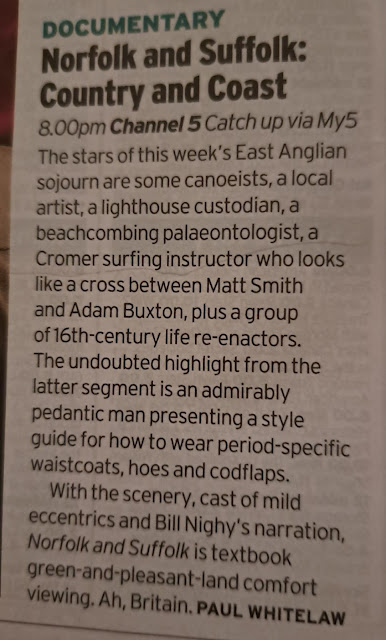09:00 Busy busy busy today - oh dear! And it's mainly "old codger" U3A business - Lynda, leader of our local "Making of English" group is very happy with the so-called "presentation on Elizabethan English" that I'm planning to give to the group at next month's meeting.
And this could be the very last meeting EVER of the group, because we started a few years back studying the Indo-European language of our linguistic ancestors, the early Yamnaya farmer-tribesmen of about 4000 BC living in the Caucasus area.
And over the years our little group has followed all the linguistic twists and turns that eventually resulted in our English language and in Shakespeare and his plays, plays which are basically more or less understandable with a little bit of help from standard "study guides" like "Cleveland Notes" or " York Notes" or "An Idiot's Guide to..." or "A Bluffer's Guide... to" etc haha!
So our group has now got as far as Shakespeare (1564-1616). Where, logically, does the group go next? I tell Lynda I think the group has probably run its course now, and it's time to quit, but we'll see what the other members say on October 7th.
10:00 My other U3A "old codger" job today is to read a bit more of the start of the Danish whodunnit novel that we're going to be reading in our U3A Intermediate Danish group. The novel is called "Judas kysset" (The Judas Kiss), and it's by Danish crime-writer Anna Grue.
Most of our members are female seniors, so they're going to find this book really exciting, and playing to all their wildest fantasies. From what I've seen in the first few pages, it's all about a 63-year-old twice-divorced art-teacher at a Danish college, Ursula, who somehow manages to hook up with a 29-year-old muscular Danish art-buff, a young man whose job it is to supply her art department with paints. So he's a pretty frequent visitor to the college in his little van.
What could be more convenient than that haha!
And despite Ursula's age and seniority in the college's art department, she has really fallen for this young guy, and I mean really fallen for him - you would not BELIEVE!!! When she first saw him getting out of his delivery van the very first time he came to the college with his paints, she was so smitten by his blonde hair and grey-green eyes that she almost collapsed - we read that she had to support herself on a desk in the classroom to stop herself falling over.
How about that for "instant attraction" and "love at first sight" !!!!! My goodness!!!
And to some extent the attraction must be mutual, because in the very first scene in the book, we see that the young paint-maker is there sleeping soundly in Ursula's bed, while she's lying awake gazing longingly at his muscular, sinewy body. We read that Ursula cringes every time she sees "her flabby tummy fat up against his hard flat abdomen" - yikes! - but that's not going to stop her, that's for sure.
Ursula is certainly menopausal too. The young man often turns over in his sleep, taking the duvet with him, but Ursula doesn't mind too much. She's only wearing her thin nightdress (Danish: tynde natkjole), but we read that her "hot flushes or flashes" (Danish: hedeture - literally 'heat tours' or 'heat trips') - are managing to keep her warm (Danish: varm).
Poor Ursula !!!!!!
14:00 Lunch is over and by now Lois and I are also in bed - we've just got under the covers for our afternoon nap and we're just checking our phones before switching them off.
We're always trying to learn new things, even in bed. And today we're delighted to see, on the quora forum website, one of our favourite pundits, Matthew May, weighing in on the vexed topic of "Was there less sunlight when dinosaurs lived on earth?"
We have never heard this "elephant in the room" discussed before, and, as it turns out, it's quite an interesting and complex answer that Matthew provides:
The facts are that the sun was dimmer 200 million years ago, apparently, Matthew says, about 30% dimmer than it is now - this is because it was "younger" and still "putting on weight", i.e. accumulating mass.
However, it wasn't quite as cold for the dinosaurs as you might imagine from that, because (a) there was more carbon dioxide or greenhouse gas in the atmosphere in those crazy, far-off days, and (b) the earth was a bit nearer the sun than it is now, about 5% nearer, so there was more solar radiation.
Who knew that? [I expect a lot of people did! - Ed]
Yes, poor dinosaurs!!!!
On the other hand, Matthew doesn't seem to think it made much of a difference to the dinosaurs in practical terms, so that's all right. But isn't it interesting that things which we regard as constant - like the strength of sunlight and the distance to the sun - aren't constant at all when looked at over millions of years.
That's slightly worrying isn't it, now that I come to think of it.
Yikes!!!!
And guess what - today as well - somebody else on the quora forum, another of our favourite pundits, Monica Anne - you know, the Monica who's the Transport Canada pilot? - is discussing the correct collective nouns for pigs and boars, something which Lois and I were discussing only yesterday, quite fortuitously. What are the chances of that happening, eh?!!!!
An astonishing coincidence - yesterday Lois was reading her copy of Broadleaf, organ of the Woodland Trust charity, and she came across the word "sounder", as in "a sounder of pigs", an expression which neither of us had seen or heard before.



































No comments:
Post a Comment